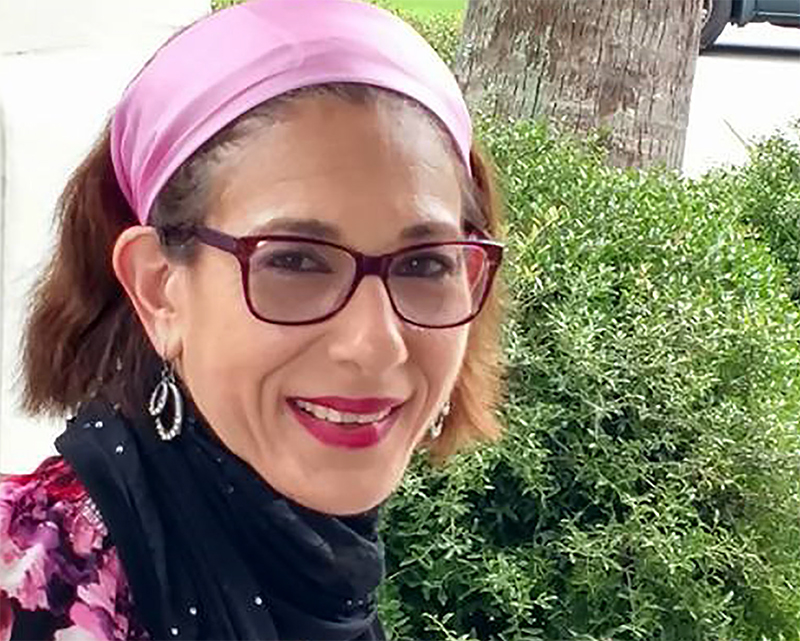 Q. I am a quadriplegic woman, and I use a motorized wheelchair for mobility. I don’t have the muscles to control my trunk or enough arm strength to push myself upright in my chair. Occasionally, I lose my balance and my body slumps to one side. When that happens, I am unable to reach the controls for my chair and cannot move it — I need someone to push my shoulder back toward the center of the chair so I can sit up straight again. This is not a problem when I’m with people I know, but sometimes I need to ask a stranger for help.
Q. I am a quadriplegic woman, and I use a motorized wheelchair for mobility. I don’t have the muscles to control my trunk or enough arm strength to push myself upright in my chair. Occasionally, I lose my balance and my body slumps to one side. When that happens, I am unable to reach the controls for my chair and cannot move it — I need someone to push my shoulder back toward the center of the chair so I can sit up straight again. This is not a problem when I’m with people I know, but sometimes I need to ask a stranger for help.
Recently, I was crossing the street in my neighborhood, and just as I rode into the crosswalk, I lost my balance in my chair and my body slumped to the right. Alone, I had no choice but to ask a passerby for help. I called out for help to the first person I saw crossing the street, a young man, but he didn’t stop. Soon after, a couple who appeared to be in their early 60s came by, and I asked them for help. They were receptive, asked what to do and then assisted without hesitation.
After arriving safely at my destination, I reflected on the encounter. Why wouldn’t the younger guy help me? Was he scared of individuals with disabilities? Did he not want to touch a woman? Was there something unique about the older couple? What should I make of the situation? Is there something I could have done differently?
A. Most people with disabilities will need help from a stranger at some point in their lives. While some people you encounter may reflexively heed your call and jump to action, it’s unrealistic to assume that a random stranger will provide help when it is asked for.
There are countless reasons a request for help might be denied or ignored. Someone might not know what to do and may feel nervous. They may fear hurting you inadvertently, or they simply may be in a hurry or having a bad day.
I wouldn’t assume that the young man was fearful of people with disabilities. Assumptions are hypothetical explanations or unproven beliefs, and they are not always accurate. After all, many individuals with disabilities feel strongly about being able to do things independently and don’t like it when others assume help is required and intervene without being asked. For instance, you may not like it when someone tries to push your chair when you can drive it yourself.
There is no specific formula for requesting help that will guarantee a response from a person you don’t know. When calling out for help, it may be useful to briefly specify what you need — “Excuse me, can you reach that cup of coffee and bring it to the table for me?” — but that is still no guarantee that the individual will respond accordingly. Consider also whether the person you’re addressing can actually hear you. So many individuals wear earbuds these days that catching the attention of a passerby can be difficult — which is frustrating even in nonemergency situations such as requiring help to open a door, fill a cup at a restaurant, or reach something off the floor.
In the event that you do receive help, it is important to thank the helper for the assistance and not dwell on the intent behind it. Most people with disabilities don’t want assumptions to be made about what they need. In turn, the fairest thing to do is to avoid making assumptions about others and just be thankful for getting help from a stranger.
** This post was originally published on https://www.newmobility.com/2020/05/asking-for-help-from-a-stranger/

